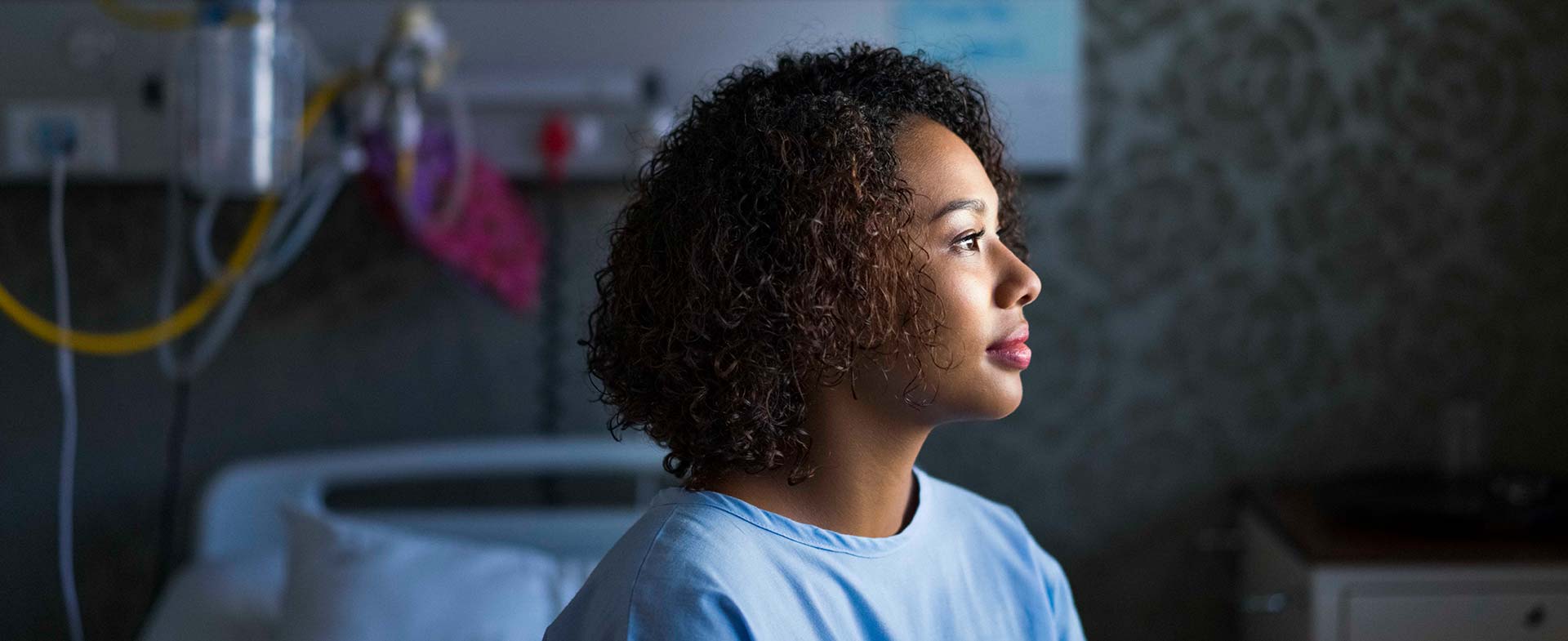There are some topics women expect to discuss with their doctor at some point in their lives. But for most, breast reconstruction surgery isn’t one of them. Yet for many people who have breast cancer, developing a reconstructive surgery plan after a mastectomy or lumpectomy is a welcome conversation. What’s more: breast reconstruction has been shown to provide a variety of mental and physical benefits, such as:
- Allowing for freedom in clothing and physical activities
- Restoring wholeness
- Facilitating emotional healing after cancer
- Eliminating the need for an external prostheses
- Regaining body symmetry
- Improving sexual or interpersonal relationships
Recently, several advances have been made in breast reconstruction - most notably, new techniques for sensation preservation and reinnervation, or restoring nerve function. There are also new procedures for reconstruction of the lymphatics if complete lymph node dissection is required. "We are hopeful these procedures will provide the missing link in breast reconstruction," says Dunya Atisha, M.D., a plastic and reconstructive surgeon at Henry Ford Health.
New technologies aside, there are plenty of general questions that people interested in breast reconstruction have before choosing a treatment option. Here, Dr. Atisha answers some of the most common questions she hears from patients about breast reconstruction.
FAQs About Breast Reconstruction
Q: I’m a breast cancer patient interested in breast reconstruction. What are my options?
A: After a mastectomy, there are typically three ways to approach the creation of the breast mound using:
- Implants
- Your own body tissue
- A combination of both
About 80% of mastectomy reconstructions use implants and that usually occurs with a two-step process. First, we stretch the tissue with tissue expanders and then we place the permanent implant in. If we’re using body tissue to help reconstruct the breast, we typically take it from the abdomen, thighs or back.

Breast Reconstruction At Henry Ford Health
Q: How long does breast cancer reconstruction take?
A: That depends on several factors, including your body type, the type of surgery you choose and other personal preferences like whether or not you choose to undergo nipple reconstruction. Typically, the entire process takes place over nine months to a year. If you need other cancer treatments, such as chemotherapy or radiation, the reconstruction process can take considerably longer to complete.
Q: Do I have to opt-in for surgery immediately after a mastectomy or lumpectomy?
A: Most women opt to have reconstruction at the time of mastectomy and some at the time of lumpectomy. Some women decide to wait. It's a personal preference. Sometimes a woman is not a candidate for reconstruction at the time of the mastectomy or lumpectomy because of the progression of the breast cancer, a smoking history, or certain medical problems that preclude them from longer operations. This is a discussion to have with your surgical team.
Q: Will the surgery or expansion process be painful?
A: Initially, breast reconstructive surgery can be painful, but it is manageable during the post-operative period with medications. After surgery with the standard tissue expanders, you'll require weekly injections to expand the implants gradually. This can result in some tightness and pain.
With tissue expanders called AeroForm AirXpanders, a wireless handheld controller triggers a valve to release small amounts of carbon dioxide. This gradually stretches the tissue of the chest wall to make room for a long-term breast implant. No needles are involved and you don’t need to make multiple visits to your doctor. Basically, you control the process. You regulate when you use it and how much air is used. You can pump yourself up a little each day, or you can take a break for a few days.
Q: What are the health risks of reconstruction or breast expansion?
A: The most common health risks include:
- Pain and tightness
- Thick scarring around the implant
- Implant infection
- Possible need for an implant exchange throughout your lifetime
There have also been studies linking implants to BI-ALCL—Breast Implant Associated Anaplastic Large Cell Lymphoma. For women with breast implants, particularly implants with a textured outer shell, the lifetime risk for contracting BI-ALCL is about 1 in 4,000 to 1 in 30,000. This is an incredibly rare event but must be taken into consideration. To put it in perspective, a women’s lifetime chance of getting breast cancer is 1 in 8.
Q: Will my insurance cover breast reconstruction?
A: Yes. In fact, insurance companies must cover breast reconstruction by law, as dictated by the Women’s Health and Cancer Rights Act, which was passed in 1998.
As you determine whether or not breast reconstruction is right for you, don’t be afraid to discuss your options openly with your doctor or seek out second opinions. Breast reconstruction can be a complex journey, and having the right people and resources on your care team can be a tremendous asset in helping you achieve the results you desire.
Reviewed by Dunya Atisha, M.D., a plastic and reconstructive surgeon who sees patients at Henry Ford Hospital in Detroit, Henry Ford Medical Center - Grosse Pointe and Henry Ford Medical Center - Columbus. Dr. Atisha is the Director of Breast Reconstruction and Microsurgery. She is certified by the American Board of Plastic Surgery and the American Board of Surgery.



